This volume contains wide-ranging surveys of various aspects of the history of Awadh from its position as a province of the Mughal Empire to a successor state, a semi-colony under the Nawabi regime, the British annexation and the resistance in 1857. The study explores the manner of Mughal administration, the emergence of the class of t’alluqdars, the Company’s constant pressure on the Nawabi regime, the cultural and agrarian milieu of a religious establishment, the law of succession and inheritance at a sufi-khanqah, the biography of a the famous scholarly rebel of 1857, Maulavi Ahmadullah Shah, the indigenous discourse in the rebel’s world, co-existence and conflicts in pre-1857 Awadh and finally, the study closes with a discussion on education and a sufi establishment of northern India with an analysis of impact of the colonial interventions. The work brings home to the reader not only the different facets of the historical personality of Awadh, but also the different types of source material available for such a study. The book forms an important complement (and corrective) to much of current historical writing of Awadh.
Contents: Preface . Introduction. 1. The Geographical Setting. I. Mughal Awadh: 2. Administration of the Jagirs in Awadh during the seventeenth century. 3. Madad-i Maash : Farmans of Aurangzeb from Awadh. 4. Tension and conflict in the agrarian society of Awadh: a study of the revenue grantees. Under Nawab-Wazirs: 5. Zamindars in Awadh: origin, fiscal rights and other perquisites. 6. Armed Zamindar: the power play in Awadh (1595-1858). 7. Origin and growth of Ta’alluqadari tenures in Awadh. 8. Landed properties of a Sufi establishment- a study of documents from salon in Awadh. 9. A Sufi institution of Awadh. 10. Inheritance, succession and the customary law in a sufi establishment of Awadh. Changes Under British Rule: 11. British intervention and agrarian instability in the kingdom of Awadh (1801-56). 12. Bengal army Sepoys and agrarian instability in the kingdom of Awadh: 1801-56 AD. 13. The land-controlling classes in Awadh-a study of changes in their composition, 1600-1900. Resistance: 14. The profile of a saintly rebel-Maulavi Ahmadullah Shah. 15. Voices of the vanquished: indigenous discourse in ‘The Rebels World’ of 1857. Culture and Education: 16. Co-existence and conflicts in pre-1857 Awadh. 17. Madrasa and Khanqah, or Madrasa in Khanaqah? Education and Sufi Establishments in Northern India. Bibliography. Index.

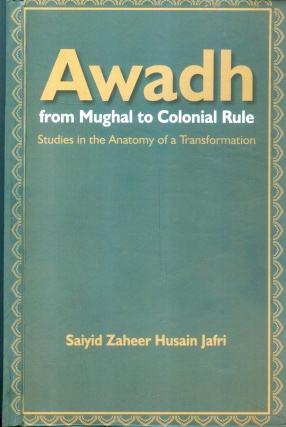
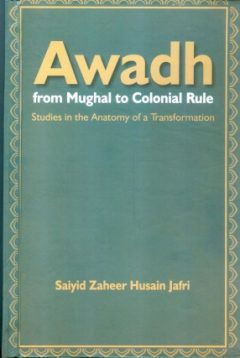
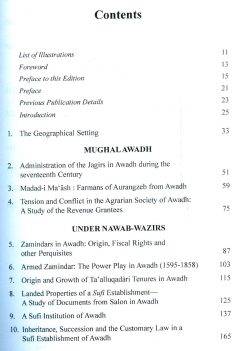
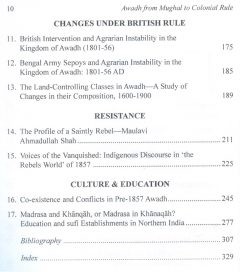
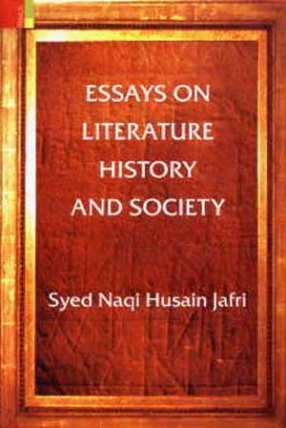
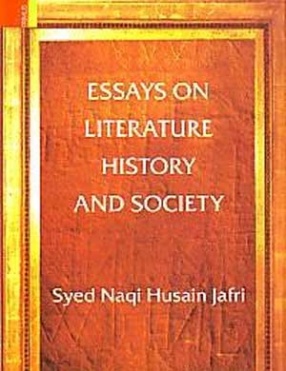
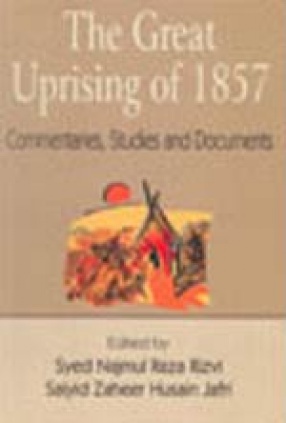
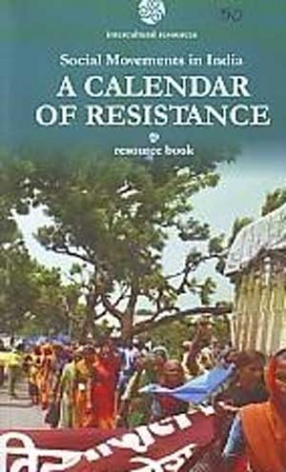

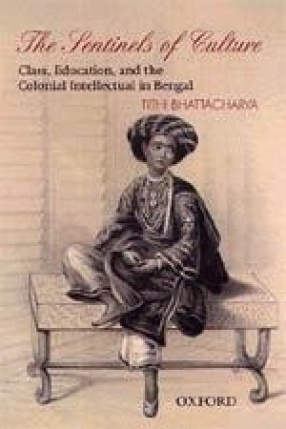
There are no reviews yet.